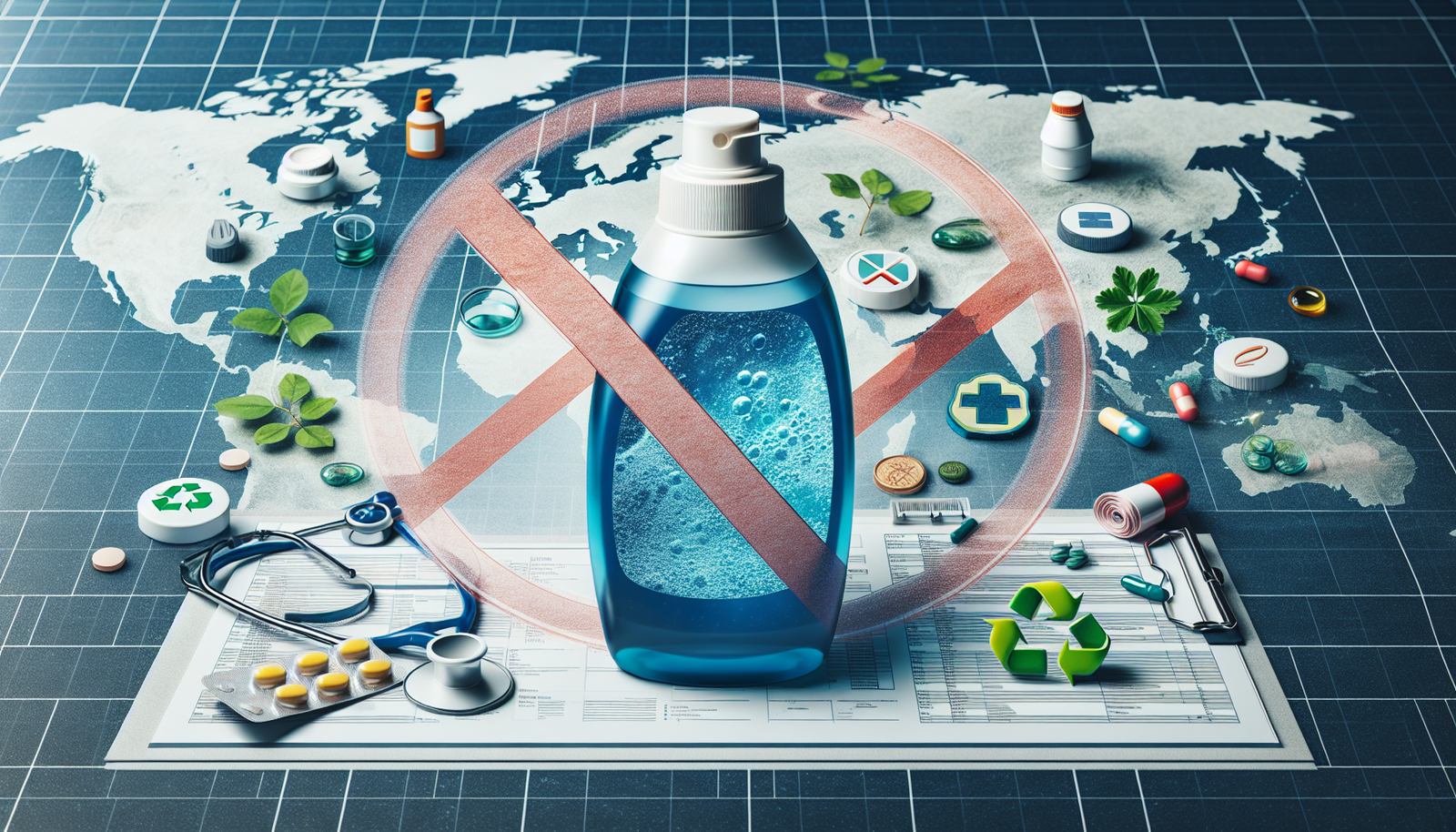
Have you ever wondered if Tide detergent is banned in Europe? As a savvy consumer, it’s important to be aware of the safety regulations and standards surrounding the products we use daily. In this article, we will examine the question of whether Tide detergent is banned in Europe and explore the reasons behind such regulations. By the end, you’ll have a clear understanding of the situation and be able to make informed decisions when it comes to your laundry routine.
Overview of Tide Detergent
Tide detergent is a popular laundry detergent brand that is widely used in households across the globe. Known for its effective cleaning power and long-lasting freshness, Tide offers a range of products that cater to different laundry needs. However, there have been some questions and concerns about the availability and regulatory status of Tide detergent in Europe. In this article, we will provide an overview of the regulatory systems in Europe, delve into the specific detergent regulations in the region, examine the ingredients used in Tide detergent, compare regulations in Europe and the United States, explore the availability of Tide detergent in European countries, address public concerns and misinformation surrounding the brand, discuss alternative detergent brands in Europe, and finally, discuss the environmental impact of Tide detergent.
Regulatory Systems in Europe
European Chemicals Agency (ECHA)
The European Chemicals Agency (ECHA) is a regulatory body responsible for managing the registration, evaluation, authorization, and restriction of chemicals within the European Union (EU). ECHA plays a crucial role in ensuring the safety of chemicals used in various industries, including detergents. They work to assess the risks associated with chemicals, provide guidance on their safe use, and enforce regulations to protect human health and the environment.
European Union (EU) Regulations
The European Union has implemented several regulations to protect consumers and the environment from potential harm caused by chemicals. These regulations cover a wide range of products, including detergents. The EU regulations aim to ensure the safe use of chemicals, promote sustainable practices, and provide consumers with information about the products they use.

Detergent Regulations in Europe
Classification, Labeling, and Packaging (CLP) Regulation
The Classification, Labeling, and Packaging (CLP) Regulation sets the rules for the classification, labeling, and packaging of substances and mixtures. This regulation is essential for ensuring that consumers are aware of the potential hazards associated with the products they use. It requires manufacturers and importers to classify and label their products correctly, ensuring that consumers have access to clear and accurate information about the hazards and safe handling of detergent products.
Detergent Regulation (EC) No 648/2004
The Detergent Regulation (EC) No 648/2004 is a specific regulation that applies to detergents sold in the European Union. This regulation aims to protect human health and the environment by setting standards for the composition, biodegradability, and labeling of detergents. It requires manufacturers to disclose the ingredients used in their products, ensuring transparency and providing consumers with information to make informed choices.
Ingredients in Tide Detergent
Tide detergent contains a mixture of ingredients that work together to deliver its cleaning power and freshness. The specific formulation may vary depending on the product variant and region. While we cannot provide an exhaustive list of all the ingredients used in Tide detergent, we can give a general overview of the categories of ingredients commonly found in their formulations.
The ingredients in Tide detergent typically include surfactants, enzymes, builders, brighteners, fragrances, and preservatives. Surfactants help to remove dirt and stains from fabrics, while enzymes target specific types of stains, such as proteins or fats. Builders enhance the effectiveness of surfactants and help to soften water. Brighteners make fabrics appear brighter and whiter, while fragrances provide a pleasant scent. Preservatives are used to maintain the quality and stability of the detergent over time.

Comparing Regulations in Europe and the United States
While both Europe and the United States have regulations in place to ensure the safety and transparency of detergent products, there are some notable differences between the two regions.
Differences in Ingredient Disclosure
In Europe, detergent manufacturers are required to disclose the full list of ingredients used in their products. This allows consumers to make informed choices and avoid potential allergens or substances of concern. In the United States, although manufacturers are required to list the active ingredients on the product label, they are not obligated to disclose the specific formulation or all the ingredients used.
Safety Assessments and Testing
In Europe, detergents undergo rigorous safety assessments and testing before they can be sold on the market. This includes evaluating their potential impact on human health and the environment. The European regulatory framework emphasizes the precautionary principle, which means that products must be proven safe before they can be introduced to the market. In the United States, while certain testing requirements exist, the burden of proof lies more with regulatory authorities to demonstrate that a product poses risks before it can be restricted or banned.
Labeling Requirements
The labeling requirements for detergents in Europe and the United States also differ. In Europe, labels must provide clear and concise information about the product, including instructions for safe use, precautions, and the full ingredients list. In the United States, labels must provide information on the active ingredients, directions for use, and any necessary warnings or precautions. The level of detail required on the label varies between the two regions.
Tide Detergent Availability in European Countries
Tide detergent is available in several European countries, including the United Kingdom, Germany, France, Italy, Spain, and many others. However, the specific product variants and availability may vary from country to country. It is important to check with local retailers or online platforms to determine the availability of Tide detergent in your area.

Public Concerns and Misinformation
Rumors about Tide Detergent’s Ban in Europe
There have been rumors circulating about the alleged ban of Tide detergent in Europe. It is essential to clarify that these rumors are not grounded in reality. Tide detergent continues to be available in European countries and complies with all the relevant regulations and standards.
Clarifications from Authorities
European regulatory authorities, such as ECHA, have clarified that Tide detergent is in full compliance with the applicable regulations. The detergent undergoes rigorous testing and assessment to ensure its safety and adherence to the established standards. Consumers can have confidence in using Tide detergent within the recommended guidelines.
Alternative Detergent Brands in Europe
While Tide detergent is a popular choice for many households, there are several other reputable detergent brands available in the European market. These brands offer a range of products that cater to different preferences and needs. Some popular alternatives to Tide detergent in Europe include Persil, Ariel, Dash, and Skip, among others. It is always a good idea to explore different options and choose the detergent brand that best suits your requirements.

Environmental Impact of Tide Detergent
Tide detergent, like any other detergent product, has an environmental impact that should be considered. The manufacturing, use, and disposal of detergents can contribute to various environmental concerns, such as water pollution and resource depletion.
However, it is important to note that Tide has been working towards minimizing its environmental footprint. The brand has made commitments to sustainable practices, such as reducing packaging waste, increasing the use of renewable energy in manufacturing, and incorporating more biodegradable ingredients in their formulations. These efforts align with the growing global awareness of environmental issues and the need for sustainable solutions.
Conclusion
In conclusion, Tide detergent is not banned in Europe and complies with the applicable regulations and standards. European regulatory systems place a strong emphasis on protecting human health and the environment, ensuring that detergent products meet strict safety requirements. Tide detergent is widely available in European countries, alongside other reputable brands that cater to diverse consumer needs. It is crucial to rely on accurate information and avoid falling victim to misinformation or rumors. By making informed choices and considering the environmental impact of detergent products, consumers can contribute to a cleaner and more sustainable future.
